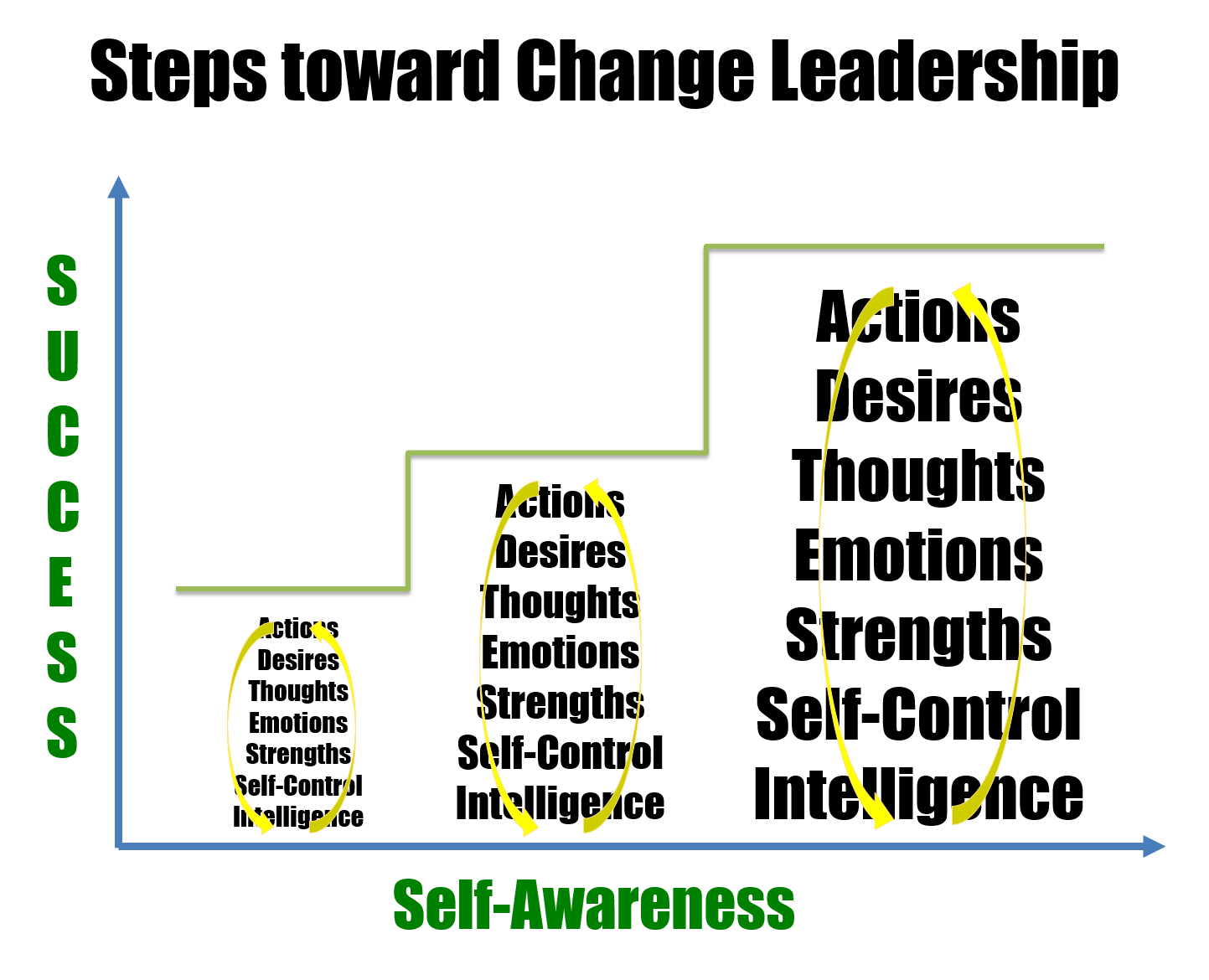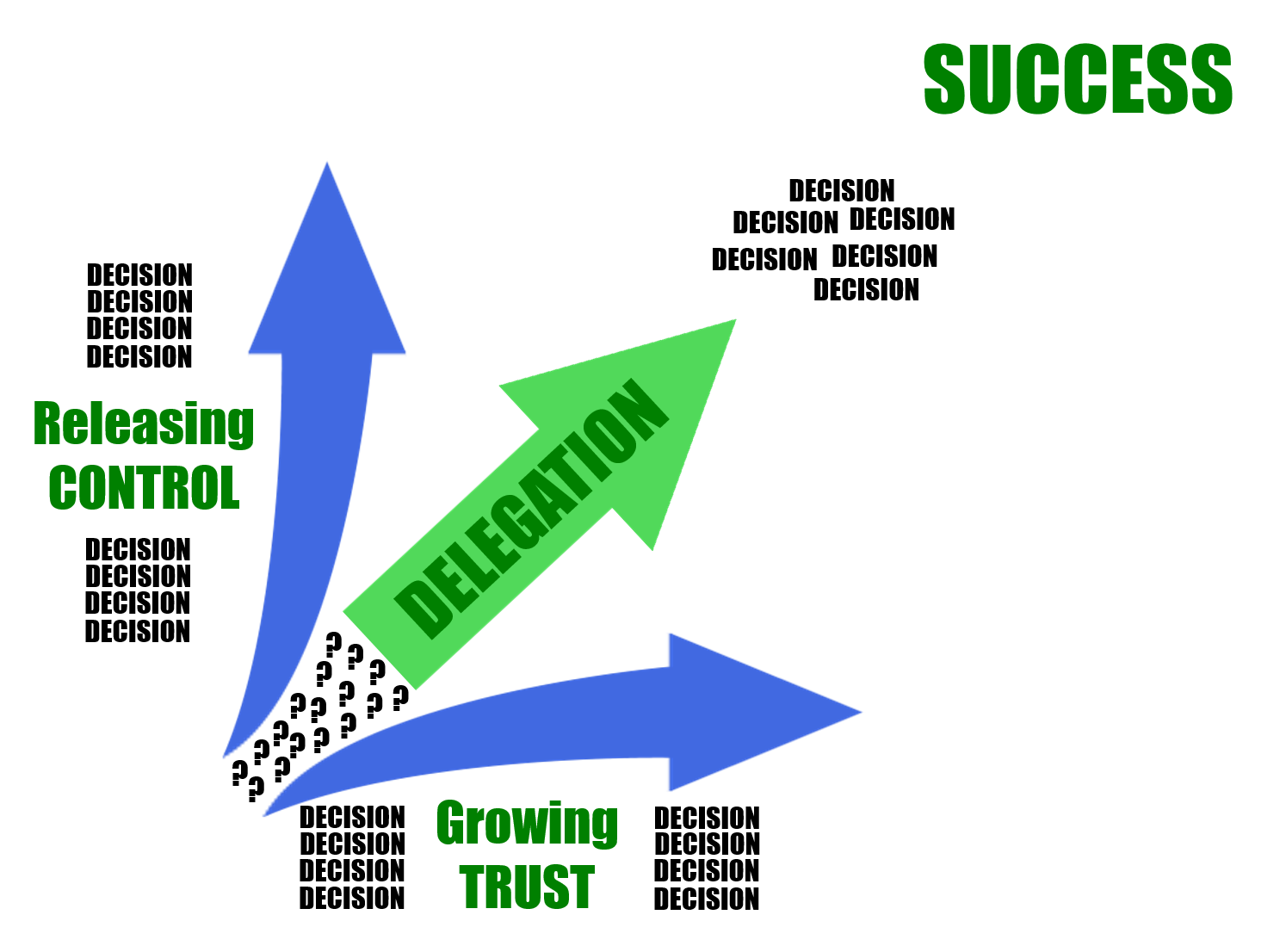|
|
by Rick Baker
On May 15, 2014
Business Contains Only 3 Things: People, Processes, & Situations
Processes come in two classes: processes done by people [thinking, acting, and communicating] & processes done by machines [created by people].
Some Processes are called 'Procedures'. Procedures are communicated in different ways: word of mouth, written documents, how-to videos, computer coding, etc.
Procedures are created in an effort to cause People and machines to perform Processes in 'proper ways', i.e., ways that are considered good ways...essentially Good Habits...ways that allow People to achieve desired results...ways that allow People to achieve Goals.
While procedures do help People achieve goals, procedures do not inspire people. Only People inspire People: People are self-inspired and People are inspired by others.
When People are inspired procedures can influence their actions.
So, the sequence for getting the most bang for the buck out of procedures is: Inspire People first, then Influence Actions and Build Business.
by Rick Baker
On Jan 28, 2014
Vision inspires
Leadership has a few essential ingredients. For example, the leader must possess a level of intelligence and the leader must possess a character that appeals to followers. Another essential ingredient is Vision. Good-to-great leaders hold a long-lasting, vivid image of what they want in their minds and they communicate that message to their followers. Some good-to-great leaders have an innate gift of communication. Other good-to-great leaders learn the art of communication.
Values fuel the right actions
Everyone lives by a set of personal Values, whether or not they are expressed verbally. The greatest of leaders naturally live by their Values in a most consistent manner. And they have a habit of painting verbal pictures around their Values. Good-to-great leaders' thoughts and actions and communications are consistent. This clarity around Values sends a consistent message to followers. The message energizes followers. In this way, the leaders' Values fuel everything.
Goals provide direction
Good-to-great leaders set long-term goals and they set short-term goals...they know the importance of little milestone steps that guide positive actions toward the long-term goal. Good-to-great leaders know the linkage between good habits and long-term goals. Good habits help people achieve their long-term goals whereas bad habits do not. Short-term goals provide the opportunity for testing, doing, failing, learning, and adjusting the next sets of short-term goals and actions.
Intent doesn't go without saying
Good-to-great leaders, when compared to average people/leaders, somehow, do a better job of understanding other people. So, somehow, they do a better job of choosing people whose intentions are more aligned to fit on common ground...rallying around a cause. Some good-to-great leaders possess natural gifts of empathy. Other good-to-great leaders figure out how to read other people and they start the process by sharing discussion of Intentions. When in doubt, they ask.
Stories get remembered
Great leaders are great communicators. They are attuned to their life-experiences and how some of those life-experiences serve as excellent examples that can be shared with other people, followers and others who could be followers in the future. Great leaders create powerful, magnetic stories around these pertinent life-experiences. They practice delivering these stories. Then they use every opportunity to present and repeat the stories...to anyone and everyone who will listen.
by Rick Baker
On Nov 15, 2013
If you want to lead change and influence others to help you achieve the success you desire, consider these things:
- Your Intelligence - This is a tough one! How can you be objective? How can you know whether or not you have the intelligence required to be a successful leader? Here's a few suggestions: (1) view this as a life-long process, work at self-knowledge, & figure out how to measure accurately [then you will be able to apply these things to understanding others], (2) ask for input from others then consider it from different perspectives [as examples, subjectively and objectively], (3) have at least one mentor...intelligence is not fixed - it is something you can expand if you work at it.
- Your Self-Control - There are two dimensions: (1) short-term control over emotions, feelings, thoughts, & actions and (2) 'Grit', the ability to control thoughts and actions so they align with personal Values, Vision, Rules, & Goals. 'Grit', as defined here, is the thing in you that determines whether or not you can illustrate Integrity to others and whether or not you have the conviction required to achieve your Desires.
- Your Emotions - Another tough one! Start by defining Emotions and how they differ from feelings, moods, and other mind states. Seek help from others who can observe you in a variety of Situations: under heavy workload, under stress, under assault [for example, while being criticized]. Assessments can help identify your weaknesses. Major weaknesses must be corrected. If they are not you will violate sacred things like Integrity and your stated Values...violations will destroy followers' Trust in a blink.
- Your Actions - and the Actions you must do to deliver value, lead others, inspire others, influence others, and help others.
Dedicate at least one full, uninterrupted day each year to measure your progress.
When you do this you will observe progress steps that look something like this...

by Rick Baker
On Nov 13, 2013
Delegation is the decision-making engine of business.
The Delegation engine is fuelled by Influence.
Influence is built on a track record of releasing control and growing trust...all laced together, consistently, with Vision, Values, Rules, Goals, & Measures...all making best use of Talents & Strengths...and, together, learning lessons from errors made along the road to Success.

And the key to successful Delegation: make Decisions around How you will go about Releasing Control and How you will go about Growing Trust. For most people and most businesses, these things do not just happen naturally. They only happen after a great deal of forethought, self-analysis, and good planning.
Practice the 80% Rule: If someone else can do the Task 80% as well as you can do it then Delegate.
And remember...
Constructive Criticism is an Oxymoron...so choose to celebrate lessons learned from failures rather than criticizing others' errors.
by Rick Baker
On Sep 17, 2013
Why do some people resist achieving goals?
I don't mean, Why do people fail to achieve goals?
I mean, Why do people intentionally fail to achieve goals?
Are those people:
- expressing objections to authority...i.e., are they working to rule?
- attempting to build job security...by ensuring a queue of work?
- children seeking long-lost parental controls?
- permanently soured on work?
- thinking "Damn the Rich...this one's for Me!"?
What goes through people's heads when they know what their employer wants them to do, are capable of doing it, yet refuse to do so?
What can we do to help those people feel comfortable exploring middle ground?
What questions can we ask to gain a better understanding of what might motivate those people?
What actions can we take to spark their enthusiasm for a job well done?
by Rick Baker
On Sep 4, 2013
Thought Tweet #818.5 Shared, or at least compatible, Values & Vision, allow people to align their focus toward common goals.
The Thinking Behind The Tweet
Another 80-20 Rule: make sure you score at least 80% common ground on Values and Vision.
If you and your partners and key players do not share common Values & Vision ground then, sooner or later, your business life will be stressed and struggled.
We have seen this time after time.
|
|